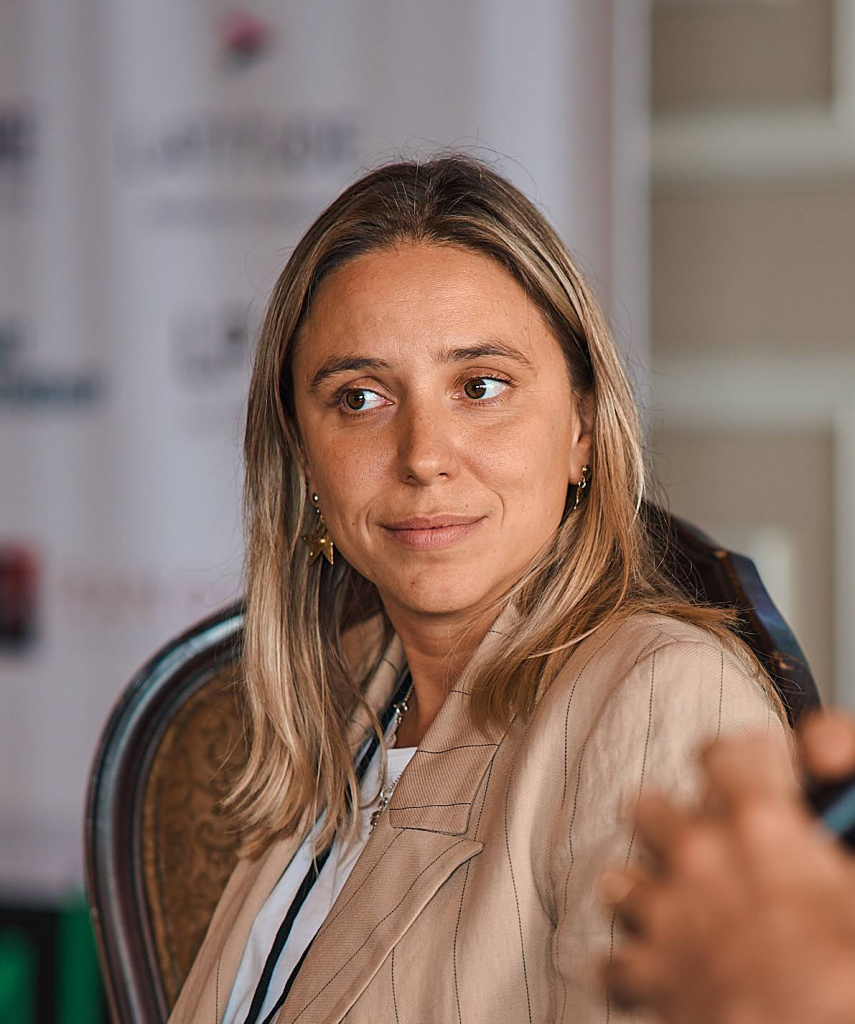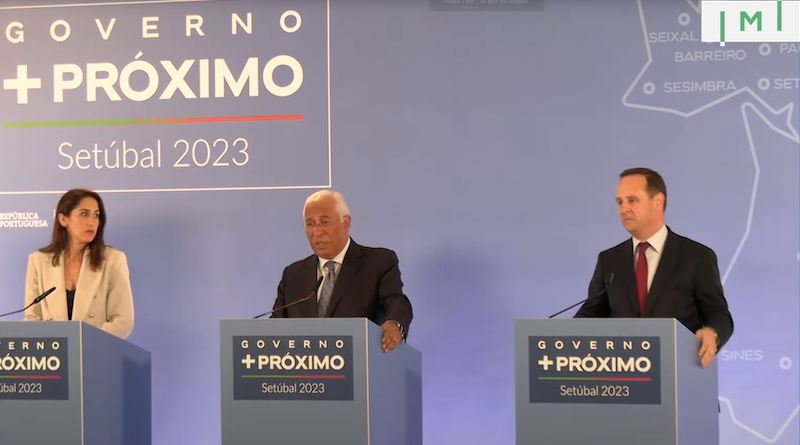Portuguese Govt. Insists on Feb 16th Cut-Off, 183-Day Presence for Golden Visa in Final “More Housing” Draft Bill
As expected, the Portuguese government yesterday delivered its final draft of the controversial “More Housing” Bill, which directly impacts the country’s golden visa program, following an extended public hearing period. The António Costa administration has approved but not yet published the final wording of the bill.
During the press conference, the Prime Minister began by pointing out that among the nearly 12,000 golden visas approved since the program opened in 2012, some nine out of ten pertained to real estate investments and that only 22 investors had qualified under the job creation route.
No more “special treatment” for GV holders: 183-day physical presence requirement like everyone else
“Therefore,” said the PM, “while the granting of this type of residence permits should still be allowed under the general law, nothing about them justifies special treatment.”

Treatment under “the general law”, in this context, explains golden visa specialist Pedro Catão Pinheiro of Next Lawyers Gali Macedo & Associados, will have the practical effect of eliminating the reduced physical presence requirements golden visa holders currently enjoy (physical presence of only 35 days over five years) and instead subject golden visa holders to the same 183-day physical presence requirement that applies to ordinary residence permit holders.
“While the PM assured listeners that Portugal has an ample immigration law with several options for foreigners who want to apply for residence permits, all those options foreseen under the general regime require a physical presence in the country for most of the year,” added Pinheiro.
In other words, if the government gets its way (which is far from certain), golden visa investors who have applied and been approved on the basis of needing to spend only a limited amount of time in Portugal to get permanent status would instead need to remain in Portugal for the majority of the year over five years to get permanent residency. Briefly put, they would not get what they paid for.
Govt. appears to yield on conditional renewal for real estate-based golden visa holders
“With respect to the [golden] visas already granted and their renewals,” continued Costa during yesterday’s press conference, “what we have decided, to give security to all those who hold them, is that these residence permits – at the moment of renewal, and presuming they meet the criteria currently foreseen for their renewal – will be converted into normal residence permits, just like those of any other foreigner residing in our country.”
The most salient observation from the above statement is that the special conditions for renewal of real estate-based golden visas (the property having to be rented out or used as a primary residence) are conspicuously absent, indicating the government is prepared to concede on this point.
“With respect to the applications pending examination, these will still be processed in accordance with the general law […] which envisions the granting of residence permits for business investment purposes, or for cultural or scientific research activities. And, therefore, the processes that are pending today will be examined in accordance with the general law and with the certification of AICEP [the Portuguese Trade & Investment Agency], Banco de Fomento [the state-owned development bank], IAPMEI [the Institute for SME support], the National Innovation Agency, or of the Ministry of Culture as to their economic, scientific, or cultural added value.”
In this manner, explained the PM, “we end up with a general regime, and everyone will be treated according to the general law without jeopardizing legal security.”
Foreign investors still welcome if they can demonstrate added value in “economic, scientific, or cultural” fields
An accompanying written summary also clarified that the bill still proposed to stop the granting of new golden visas as of February 16th (which would make the law retroactive in its effects, a key point of contention raised by the bill’s opponents, who maintain such a provision would be unconstitutional). The summary also indicated that investors who had already applied for but not yet been granted golden visas would see their applications processed under the “residence permit regime for entrepreneurial immigrants” and that those coming up for the bi-annual renewal would see their visas converted to the same entrepreneurial category.

“The situation is very similar to the one that has existed since the first declaration of the Prime minister on February 16th,” commented Vanessa Rodrigues Lima and Sara Sousa Rebolo of Prime Legal in an explanatory note shared with clients, “which means that there is a proposal but not yet one that is approved nor in force. As such, the Immigration Office [SEF] is still receiving new applications.”
The administration, explained Rebolo and Lima, “intends to eliminate the special regime called the ‘Golden Visa’ but will continue to receive foreign investors through other regimes based on the economic, scientific, or cultural added value of the investments performed.”
Rebolo and Lima further indicate they believe the PM’s mention of “the residence permit regime for entrepreneurial immigrants” is a reference to the D2 visa (a visa for immigrant entrepreneurs that requires physical presence for most of the year from the second year onwards).
They further noted that the government appears to insist that the law be retroactively enforced in light of the published summary’s statement that applications filed after February 16th will not be valid.
“At this point”, said the Prime Legal representatives, “the market is waiting to get access to the concrete wording of the law that will be sent to Parliament for discussion and amendments, which is expected after Easter.” Once the bill is submitted to Parliament, they explained, the President (who has expressed serious apprehensions about the proposal) will either ratify the bill, request amendments, or submit it to the Constitutional Court for evaluation.
“Endless litigation in the Portuguese courts”

Portuguese lawyer Madalena Monteiro of Magwind said the proposal represented a “violation of basic constitutional rights, like the prohibition on retroactive effects in new laws.” Such measures, if adopted, she says, are likely to occasion “diplomatic conflicts between the countries where the applicants reside and Portugal, as well as endless litigation in the Portuguese courts.”
The amendments, as proposed by PM Costa, “are incomprehensible,” said Monteiro, because they “represent the loss of thousands of jobs in the industry and billions of foreign direct investment in the country”.
Preparations for litigation and counter-offensives are already underway. The Portuguese Association for Immigration, Investment, and Relocation has set up a WhatsApp group for golden visa stakeholders (major developers, law firms, fund managers, etc.), in which it has launched a “Task Force” initiative aimed at “a concerted reaction to the Government’s decision to abruptly end the Golden Visa Program.”
The two chief lines of attack, say the Task Force initiative-takers, will be to hire a PR agency for “intense public reaction”, as well as to prepare “a draft for legal action regarding affected cases.”
The group aims to raise financial support from at least 30 participants initially.
Welcoming the initiative, Monteiro remarked tersely that “we are all coming together, and we will go after Costa.”
More on Portugal’s golden visa crisis:
- Portuguese President Calls Housing Bill “Unfeasible”, Indicates It is Unlikely to Go Through
- Portugal Golden Visa: Madeira “Refuses” to Comply, President Says Govt. is Considering “Alternative Proposals”
- Portugal’s Golden Visa Public Discussion Period and What’s at Stake
- Portuguese Govt. Extends Public Discussion Period on “More Housing” Bill By Two Weeks
- Before You Mourn the Demise of Portugal’s Golden Visa: Some Nuance and Context
Christian Henrik Nesheim is the founder and editor of Investment Migration Insider, the #1 magazine – online or offline – for residency and citizenship by investment. He is an internationally recognized expert, speaker, documentary producer, and writer on the subject of investment migration, whose work is cited in the Economist, Bloomberg, Fortune, Forbes, Newsweek, and Business Insider. Norwegian by birth, Christian has spent the last 16 years in the United States, China, Spain, and Portugal.



